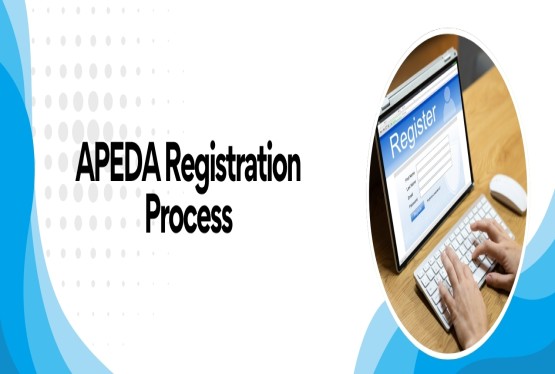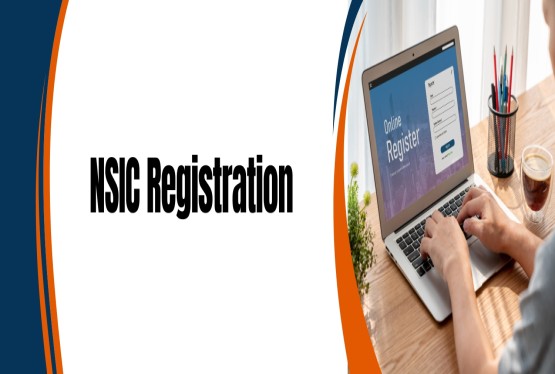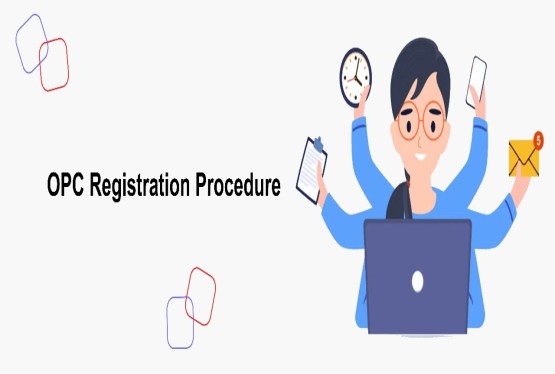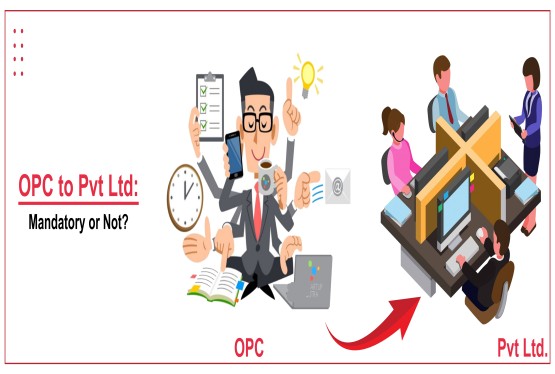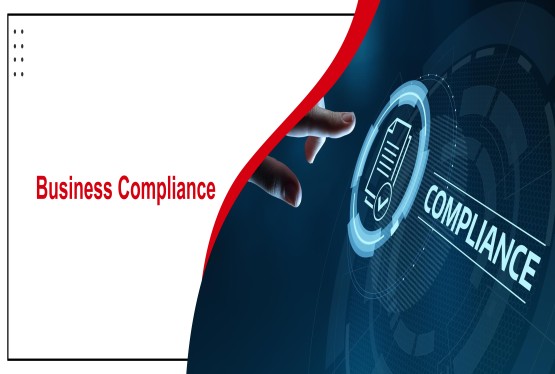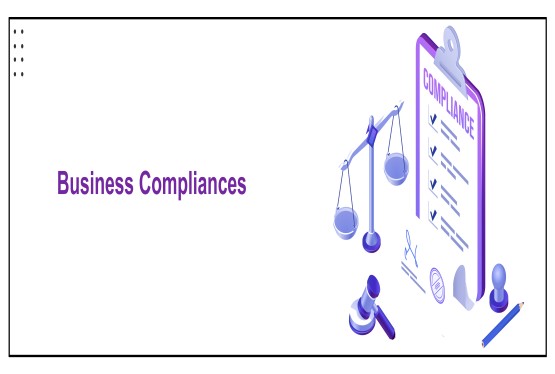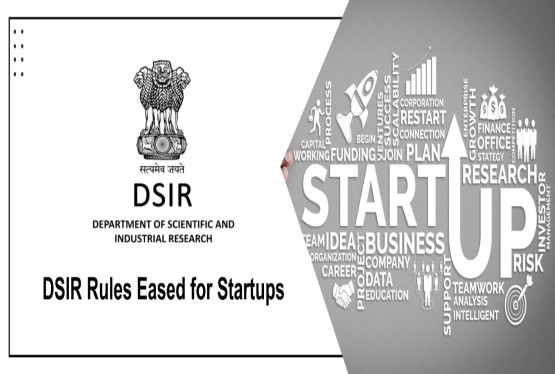India’s healthcare sector is witnessing significant growth as the need for accessible, affordable, and quality medical services continues to rise. This expanding offers aspiring entrepreneurs a wide range of opportunities in areas such as clinics, hospitals, diagnostic centers, pharmacies, telemedicine, and medical equipment supply. However, establishing a medical business in India requires more than just funding and an idea it involves a complex network of healthcare regulations, licenses, professional qualifications, and ethical standards. From choosing the right business model and legal structure to obtaining necessary approvals and setting up operations, this article provides a complete guide to help you start and operate a successful medical business in India.
Learn more about CDSCO Manufacturing License for Medical Devices in India.
Choose the Type of Medical Business
Before starting a medical business in India, it is essential to clearly identify the type of services or products you plan to offer. The healthcare industry is vast and diversified, and each type of medical business has its own regulatory, infrastructure, and qualification requirements. Choosing the right model not only defines your operational scope but also determines the licenses, staffing, and investment you will need. Here are some common types of medical businesses in India:
Private Clinics or Polyclinics
These can be single-specialty (e.g., dermatology, orthopedics) or multi-specialty setups offering outpatient services. Clinics usually require minimal infrastructure and are often managed by individual doctors or a group of practitioners.
Hospitals and Nursing Homes
Establishing a hospital involves a much larger setup, including emergency care, inpatient beds, operation theatres, and intensive care units. It also requires compliance with building codes, fire safety, biomedical waste management, and clinical establishment regulations.
Pharmacies and Chemist Shops
A pharmacy business involves selling prescription and over-the-counter medicines. This type of business requires a retail drug license and the supervision of a qualified pharmacist registered with the State Pharmacy Council.
Diagnostic Laboratories and Imaging Centers
Diagnostic businesses include pathology labs (for blood, urine, and tissue tests) and radiology centers (for X-rays, MRIs, CT scans). These businesses require specialized equipment, certified lab technicians, and approvals from bodies like the AERB (for radiology).
Medical Device and Equipment Supply
This includes manufacturing, importing, distributing, or retailing medical equipment and devices like surgical instruments, diagnostic tools, and hospital furniture. Regulatory approvals from CDSCO and BIS may be required based on the product category.
Telemedicine and HealthTech Startups
With the rise of digital healthcare, telemedicine platforms and health-tech applications have become popular. These platforms connect doctors and patients through online consultations, diagnostics, and prescription services. Legal compliance includes adherence to Telemedicine Practice Guidelines, IT Act provisions, and data privacy laws.
Home Healthcare and Ambulance Services
These businesses cater to patients at home, offering services like nursing, physiotherapy, elder care, or on-call emergency transport. Home healthcare services need trained staff and adherence to medical protocols, while ambulance businesses must meet road safety and equipment standards.
Selecting the type of medical business will help you create a focused business plan, determine your investment and hiring strategy, and identify the necessary licenses and approvals. It is advisable to assess local market demand, competition, and target demographics before finalizing your choice.
Decide the Business Structure
Once you have chosen the type of medical business you want to start, the next important step is to decide the appropriate legal business structure. Your choice of structure will influence everything from regulatory compliance and taxation to liability, funding opportunities, and ownership flexibility. In India, several business structures are available depending on the size, scale, and future growth plan of your medical enterprise. Here’s a detailed overview of the most commonly used business structures for medical businesses:
Sole Proprietorship
Sole Proprietorship is the simplest and most cost-effective business structure, typically used for small clinics, single-doctor practices, and retail pharmacies. It does not require formal registration (beyond basic tax and local licenses), and the business is owned and managed by one individual. While easy to operate, it offers no limited liability protection, meaning the owner is personally liable for debts or legal issues.
Partnership Firm
A partnership firm is ideal when two or more individuals (such as doctors or healthcare professionals) wish to jointly run a medical business. A Partnership Deed defines the roles, responsibilities, profit-sharing ratio, and liabilities. While registration under the Indian Partnership Act, 1932 is optional, it is highly recommended for legal protection and dispute resolution. Like proprietorship, partners have unlimited liability unless converted into an LLP.
Limited Liability Partnership (LLP)
An LLP offers the advantages of a partnership with limited liability protection for the partners. It is registered under the LLP Act, 2008 and is suitable for diagnostic centers, small hospitals, and group practices. LLPs are a popular choice for professionals due to reduced compliance compared to companies, combined with legal protection of personal assets.
Private Limited Company
A private limited company is a separate legal entity registered under the Companies Act, 2013. It offers limited liability, higher credibility, and scalability making it ideal for medium to large hospitals, diagnostic chains, telemedicine startups, and medical equipment manufacturers. It can raise equity funding from investors and issue shares. However, it involves more compliance, such as board meetings, annual filings, and audits.
Section 8 Company (Non-Profit)
If your aim is to provide medical services on a charitable basis, such as running a free clinic or trust hospital, you can register a Section 8 Company under the Companies Act, 2013. This structure is eligible for tax exemptions under Section 12A and 80G of the Income Tax Act, and must reinvest profits into the company’s objectives.
Why Business Structure Matters
Choosing the right business structure impacts multiple aspects:
-
Legal liability of founders and partners
-
Taxation and reporting obligations
-
Eligibility for government schemes or funding
-
Ease of licensing and registrations
-
Brand perception and investor confidence
It is advisable to consult a legal or financial advisor to determine the structure that best aligns with your business goals, investment capacity, and regulatory needs. Once finalized, you must register the entity with the Ministry of Corporate Affairs (MCA) and obtain relevant certificates such as PAN, TAN, and GST registration.
Secure a Suitable Location and Infrastructure
Securing the right location and developing compliant infrastructure are among the most important steps when starting a medical business in India. The physical premises must not only meet your operational needs but also comply with local health, safety, and zoning regulations. Whether you're setting up a clinic, hospital, pharmacy, or diagnostic lab, the location significantly impacts accessibility, patient footfall, regulatory approvals, and service delivery.
Selecting the Right Location
Your location should align with your target audience and the type of services you offer. For example, setting up a clinic or pharmacy near residential areas, schools, office hubs, or near existing hospitals can ensure steady patient flow. Diagnostic centers and imaging labs often benefit from proximity to hospitals and doctors’ clinics where prescriptions for tests are regularly issued.
Additionally, for hospitals or nursing homes, consider access to emergency services, parking space, ambulance routes, and public transport availability. Always verify that the area is zoned for healthcare or commercial use by the local municipal authority to avoid regulatory hurdles.
Infrastructure Planning and Layout
Infrastructure must be planned carefully in accordance with the nature of the medical business and national healthcare guidelines. Here are key considerations:
-
Clinics should include a waiting area, consultation room, restrooms, and pharmacy space (if applicable).
-
Hospitals must have facilities for emergency care, ICU, general wards, private rooms, operation theatres, diagnostic departments, sterilization units, storage rooms, staff quarters, and ambulance bays.
-
Diagnostic Labs should have designated sample collection areas, technician rooms, pathology setups, and separate storage for chemicals and samples.
-
Pharmacies require clean, well-ventilated, and temperature-controlled storage rooms with secure racks and refrigerators (for vaccines and medicines).
Ensure the premises meet minimum space requirements as per the Clinical Establishments (Registration and Regulation) Act, 2010 or respective state rules.
Safety and Compliance Requirements
Your premises must comply with applicable municipal and healthcare safety norms, such as:
-
Fire Safety Clearance from the Fire Department, especially for hospitals, labs, and multi-floor facilities.
-
NOC from Municipal Corporation and Trade License for operating a business in the chosen premises.
-
Pollution Control Clearance for biomedical waste management and disposal under the Biomedical Waste Management Rules, 2016.
-
Proper Electrical Load Approval and backup generators for uninterrupted operations, especially for equipment-intensive units like hospitals and labs.
-
Clean Water Supply, Air Conditioning, CCTV Surveillance, and Security Systems should be incorporated as part of patient and staff safety.
For hospitals and diagnostic facilities, compliance with National Building Code (NBC) and Indian Public Health Standards (IPHS) is highly recommended.
Infrastructure for Digital Healthcare
If you are launching a telemedicine platform or digital health venture, your infrastructure will include digital infrastructure such as:
-
High-speed internet
-
Cloud-based servers and data backups
-
Teleconsultation software or platforms
-
Electronic Health Record (EHR) systems
-
Secure storage for patient data (in compliance with IT Act and DISHA draft)
Ensuring cybersecurity and data encryption is mandatory for digital medical businesses.
Selecting a location strategically and developing compliant infrastructure forms the backbone of your medical business. The right setup enhances patient experience, ensures operational efficiency, and simplifies regulatory approvals. Investing in quality infrastructure also builds credibility, enhances your brand image, and contributes to long-term success in the healthcare ecosystem.
Obtain Mandatory Licenses and Registrations
Starting a medical business in India requires strict adherence to various legal and regulatory frameworks. Healthcare is one of the most regulated sectors in the country, and failure to obtain the appropriate licenses and registrations can result in penalties, closure, or legal action. The exact licenses required depend on the type of medical business you intend to operate such as a clinic, hospital, pharmacy, diagnostic lab, medical device company, or telemedicine platform. Below is a breakdown of the mandatory licenses and approvals needed for different types of medical businesses.
For Clinics and Hospitals
Clinics and hospitals must be registered under applicable state or central laws. The primary license is:
-
Clinical Establishment Registration under the Clinical Establishments (Registration and Regulation) Act, 2010, or the respective state-specific Act (applicable in states like Delhi, Karnataka, and Uttar Pradesh). This registration ensures minimum standards of facilities, services, and staff are maintained.
Other important licenses include:
-
Trade License from the Municipal Corporation for running a healthcare facility.
-
Fire Safety NOC from the State Fire Department, especially for multi-floor or large premises.
-
Building Fitness and Structural Stability Certificate to ensure safety compliance.
-
Lift and Electrical Safety Certificate, if applicable.
-
Biomedical Waste Management Authorization under the Biomedical Waste Management Rules, 2016 from the State Pollution Control Board, which mandates safe collection, segregation, and disposal of infectious and hazardous waste.
-
Consent to Operate under Water and Air Acts, applicable to larger hospitals with pollution discharge.
-
Drug License (Retail/Dispensing License), if the hospital dispenses medicines in-house.
-
NOC from AERB (Atomic Energy Regulatory Board) if radiological equipment such as X-rays or CT scanners are used.
For Pharmacies and Chemist Shops
A pharmacy business in India cannot operate without a valid license issued under the Drugs and Cosmetics Act, 1940. You must obtain:
-
Retail Drug License (Form 20 and Form 21) from the State Drug Control Department.
-
A qualified pharmacist with a valid registration from the State Pharmacy Council must be appointed to oversee daily operations.
-
Shop and Establishment Registration under the local labor department.
-
GST Registration is required if the turnover exceeds Rs.20 lakh (Rs.10 lakh in special category states).
Storage conditions, such as refrigeration and record-keeping, must comply with the guidelines laid down by the Drug Control Authority.
For Diagnostic Laboratories and Imaging Centers
Diagnostic centers and labs must adhere to the following licensing requirements:
-
Clinical Establishment Registration, as applicable in the state.
-
Trade License from the local municipal authority.
-
Biomedical Waste Management Authorization from the Pollution Control Board.
-
Approval from AERB for using radiological devices like X-ray, CT, or MRI machines. This includes site approval, installation clearance, and operating license.
-
Consent to Establish and Consent to Operate for centers using chemicals or heavy machinery.
-
NABL Accreditation from the National Accreditation Board for Testing and Calibration Laboratories is not mandatory but enhances credibility, especially when dealing with hospitals, insurance companies, or government health programs.
For Medical Device Businesses
If your business involves the manufacturing, import, distribution, or retail of medical devices, you must comply with the Medical Devices Rules, 2017 administered by the Central Drugs Standard Control Organization (CDSCO).
Depending on the classification of the device (Class A to D), you need:
-
Manufacturing License or Loan License for domestic production.
-
Import License (Form MD-14) and Registration Certificate (Form MD-15) for importers.
-
Wholesale Drug License if the device falls under the definition of “drug” under the Drugs and Cosmetics Act.
-
BIS Certification under the Compulsory Registration Scheme (CRS) for specific categories like thermometers, BP monitors, and glucometers.
-
GST Registration for sales and taxation compliance.
For Telemedicine, HealthTech, and Online Consultation Platforms
Telemedicine platforms must comply with the Telemedicine Practice Guidelines, 2020, issued by the Ministry of Health and Family Welfare, which lay down protocols for online consultations.
Important legal considerations include:
-
Registration of the doctor with a State Medical Council or National Medical Commission (NMC).
-
IT Act, 2000 compliance for securing patient data and digital prescriptions.
-
Adherence to data privacy and protection standards, especially when storing patient records and conducting e-consultations.
-
Terms of Service, Privacy Policy, and Consent Forms for patients using the platform.
In future, compliance with the upcoming Digital Information Security in Healthcare Act (DISHA) or Personal Data Protection Bill will become mandatory for all digital health platforms.
General Registrations Applicable to All
Irrespective of the medical business model, some common registrations include:
-
Permanent Account Number (PAN) and Tax Deduction and Collection Account Number (TAN) for taxation.
-
GST Registration for businesses crossing the prescribed turnover limit.
-
ESI and EPF Registration if employing more than 10 employees.
-
Professional Tax Registration in applicable states.
Obtaining the correct licenses and registrations is a non-negotiable aspect of starting and running a medical business in India. Regulatory compliance not only ensures smooth operations but also builds trust with patients, partners, and regulatory bodies. It is advisable to consult with legal professionals, chartered accountants, or specialized licensing consultants to avoid errors and delays in approvals. Timely renewal of licenses, compliance with applicable standards, and maintaining audit-ready records will keep your business on the right side of the law and enhance your long-term success in the healthcare ecosystem.
Hire Qualified Professionals
Hiring qualified and licensed professionals is essential for operating any medical business in India. Doctors must be registered with the National Medical Commission (NMC) or a State Medical Council, and pharmacists must hold valid registration with the State Pharmacy Council. Paramedical staff such as nurses, lab technicians, and radiographers must have recognized qualifications and certifications.
Diagnostic labs and hospitals must appoint trained personnel as per NABL or Clinical Establishment norms. Support staff like receptionists, billing executives, and housekeeping must also be properly onboarded and trained in patient handling and emergency protocols. Additionally, businesses employing more than 10–20 staff must comply with labor laws, including ESI, EPF, and Professional Tax registration.
Maintaining proper employee records, contracts, and training logs ensures regulatory compliance and smooth operations. Hiring the right team builds credibility, enhances patient trust, and ensures high standards of healthcare service delivery.
Ensure Compliance with Healthcare Laws
To legally operate a medical business in India, compliance with healthcare laws is essential. Clinics, hospitals, and labs must register under the Clinical Establishments Act, 2010 or respective state rules. Pharmacies must follow the Drugs and Cosmetics Act, 1940, while labs and hospitals handling medical waste must comply with the Biomedical Waste Management Rules, 2016.
Radiology centers need approval from the Atomic Energy Regulatory Board (AERB), and all medical practitioners must follow the ethical guidelines issued by the Medical Council of India. If patient data is collected digitally, compliance with the IT Act, 2000 and upcoming DISHA and Data Protection laws is also required.
Additionally, labor laws like ESI, EPF, and Professional Tax apply if employing staff. Regular audits and timely license renewals help ensure smooth, legal operations and maintain patient trust.
Arrange Funding and Investment
Starting a medical business requires significant investment in infrastructure, equipment, licenses, and skilled staff. Funding options include self-financing, bank loans, medical equipment financing, and government schemes like PMEGP or Startup India. Health-tech startups can also seek funding from angel investors or venture capital firms.
To secure funding, prepare a detailed business plan, project report, and financial projections. Highlight your business model, market potential, break-even analysis, and compliance readiness to build investor confidence and ensure smooth financial planning.
Set Up Technology and Software Infrastructure
Implementing the right technology is essential for running an efficient and compliant medical business. Use Hospital or Clinic Management Software to handle patient records, appointments, billing, and inventory. Maintain Electronic Health Records (EHRs) and Laboratory Information Management Systems (LIMS) for better accuracy and reporting.
For telemedicine, use secure platforms that follow the Telemedicine Practice Guidelines, 2020, with features like video consultations and e-prescriptions. Ensure data security and privacy compliance under the IT Act, 2000 and prepare for upcoming laws like DISHA. Also, integrate GST-compliant billing and inventory management tools to simplify financial operations. A strong digital setup improves efficiency, builds credibility, and ensures regulatory readiness.
Maintain Quality and Accreditation
While not a legal requirement, securing accreditations greatly strengthens trust and credibility in a medical business. They demonstrate adherence to recognized quality standards, boosting your reputation and competitive edge:
Importance of Quality Assurance
Maintaining consistent service quality builds patient trust, strengthens brand reputation, and ensures long-term success in the healthcare industry.
Accreditation is Voluntary but Valuable
Although not legally mandatory, accreditations prove that your medical business meets recognized national or international healthcare standards, adding credibility and professionalism.
NABH Accreditation for Hospitals and Clinics
The National Accreditation Board for Hospitals and Healthcare Providers (NABH) certifies that your facility follows proper patient care protocols, clinical safety measures, and operational excellence.
NABL Accreditation for Diagnostic Labs
The National Accreditation Board for Testing and Calibration Laboratories (NABL) confirms that your diagnostic lab meets ISO 15189 standards for accurate testing, qualified staff, and reliable reports.
ISO Certification for Equipment Providers
Businesses dealing in medical equipment should secure ISO 13485 certification, which ensures a compliant quality management system in manufacturing and distribution.
Enables Institutional Tie-Ups
Accreditation helps you partner with insurance companies, Third-Party Administrators (TPAs), and corporate health providers, improving patient access and increasing business.
Empanelment Under Government Schemes
Certified medical businesses are eligible for government health programs like Ayushman Bharat, ESIC, and CGHS, which broaden your service reach and patient inflow.
In Summary
Starting a medical business in India takes more than just money it needs proper planning, legal permissions, and a focus on good service. First, decide what kind of medical business you want to start, like a clinic, lab, or pharmacy. Then, register your business, get the required licenses, and hire trained professionals. Getting accreditations like NABH, NABL, or ISO can help build trust and allow tie-ups with insurance companies or government health schemes like Ayushman Bharat. Good infrastructure, clean facilities, and useful software tools can make your business run better. You also need to follow rules like the Clinical Establishments Act and waste management laws. India’s healthcare needs are growing fast, so this is a good time to enter the field. If you follow the right steps and focus on quality care, your business can succeed and grow.
Frequently Asked Questions (FAQs)
Q1. What are the basic steps to start a medical business in India?
Ans. To start a medical business in India, you need to choose the type of business (clinic, lab, pharmacy, etc.), register the business, obtain licenses, arrange location and infrastructure, hire qualified staff, and ensure compliance with applicable healthcare laws.
Q2. What licenses are required to start a medical business in India?
Ans. Common licenses include:
-
Trade License from local municipal authorities
-
GST Registration
-
Drug License (Form 20, 21, or 28 for pharmacies/labs)
-
Clinical Establishment Registration (if applicable)
-
Pollution Control Board NOC (for biomedical waste)
-
Fire and Building Safety Certificates
Q3. Do I need to be a doctor to open a medical business?
Ans. Not necessarily. While certain businesses like clinics or hospitals require medical professionals for operations, anyone can invest or start a healthcare business by hiring qualified doctors and medical staff.
Q4. How much investment is required to start a medical business?
Ans. The investment depends on the type of business. A small clinic may need Rs.5–10 lakhs, while a diagnostic lab or hospital may require Rs.50 lakhs to several crores, including infrastructure, licenses, and staffing.
Q5. Is accreditation like NABH or NABL mandatory?
Ans. No, accreditation is not mandatory but highly recommended. NABH (for hospitals) and NABL (for labs) improve quality, trust, and eligibility for insurance and government health schemes like Ayushman Bharat.
Q6. Can I run a medical business from a residential property?
Ans. Only if local municipal laws permit it. You must check zoning regulations and get necessary approvals to operate a clinic, pharmacy, or lab from a residential location.
Q7. What is the Clinical Establishments Act, and do I need to follow it?
Ans. The Clinical Establishments (Registration and Regulation) Act, 2010 mandates registration and standard compliance for all healthcare facilities in notified states. If your state follows this Act, registration is compulsory.
Q8. Are there any government schemes I can tie up with?
Ans. Yes. You can apply for empanelment with schemes like:
-
Ayushman Bharat - PMJAY
-
CGHS (Central Government Health Scheme)
-
ESIC (Employee State Insurance Corporation)
These programs boost credibility and patient reach.
Q9. What kind of professionals should I hire for a medical business?
Ans. Depending on your business type, hire:
-
MBBS doctors or specialists
-
Pathologists and lab technicians
-
Pharmacists (D.Pharm or B.Pharm)
-
Nurses, radiologists, and administrative staff
Q10. What legal compliances must I maintain?
Ans. Ensure compliance with:
-
Medical Council of India (MCI)/State Medical Council norms
-
Biomedical Waste Management Rules, 2016
-
Drugs and Cosmetics Act, 1940
-
Clinical Establishments Act (if applicable)
-
Regular tax filings and employee labor laws

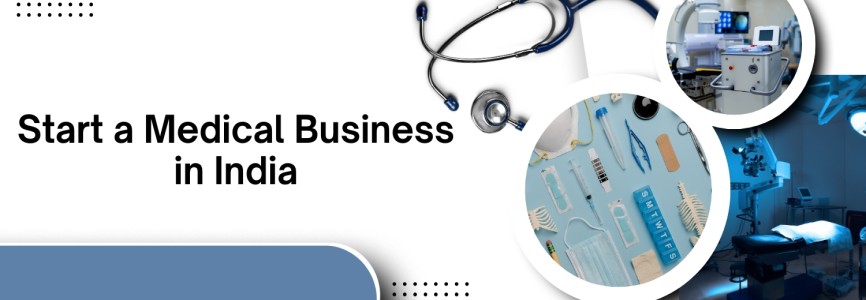










_crop10_thumb.jpg)





_crop10_thumb.jpg)




























-Form_crop10_thumb.jpg)

_crop10_thumb.jpg)























_learn_crop10_thumb.jpeg)
































_crop10_thumb.jpg)

_crop10_thumb.jpg)





















_crop10_thumb.jpg)















_for_Foreign_Directors_learn_crop10_thumb.jpeg)




_Act,_2015_learn_crop10_thumb.jpg)



































_learn_crop10_thumb.jpg)










